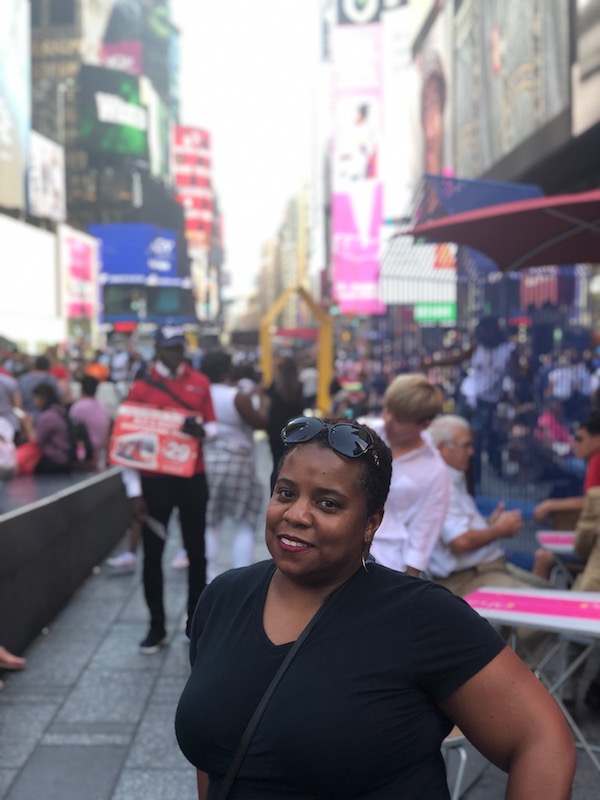Spotlight: Graduate Ambassador Tracy A. Boyce
By Tracy A. Boyce, Ph.D. student in learning design and technology

Being a graduate student can be isolating, particularly during a pandemic. Participating in the Graduate Ambassadors program last year allowed me to connect with graduate students across the university. I learned about their research as well as their trials and triumphs, and it was nice to support and celebrate one another.
This summer, I prepared for the most challenging part of my doctoral journey: the qualifying exam. While I am pretty good at taking exams, I am horrible at studying for them. Participation in three activities saved me: an informal study group formed by Linda Jiménez, Ph.D., program coordinator of learning design and technology; The Scholar Circle, an online community for graduate students of color created by Allanté Whitmore; and the inaugural cohort of the STEMinist Empowered Mentoring program developed by Malika Grayson, Ph.D.
- Because of the informal study group, I developed deeper relationships with some of my classmates. We encouraged each another through calls and texts. (I also learned that faculty members—like Dr. Jiménez and my advisor Dr. Tracey—are just as committed to our success as we are. It is important to establish and maintain relationships with them, too.)
- In The Scholar Circle, I obtained tools to help me stay organized, tips for practicing self-care, and information about topics of interest to graduate students. I also connected with group members in co-working sessions, an online forum, and virtual social events.
- The free mentoring program exposed me to other Black women who have completed or are on this doctoral journey. We talked about branding and networking, entrepreneurship, mentorship and sponsorship, imposter syndrome, self-advocacy, and self-care.
My involvement in the Ambassadors program and these three activities illustrate the importance of community. I discovered it is much easier to earn a graduate degree when you realize you are not alone, have a community who supports and encourages you, and can see, interact with, and learn from others who have accomplished the goal you are working toward.
I returned to the Ambassador program because community is something I hope to help build among graduate students. Virtual study groups, a how-to series (e.g., how to keep a dialectical journal, get published, prepare a CV, etc.), peer review sessions, and regular self-care and technology tips are potential projects I would like to initiate or coordinate. Creating a graduate student toolkit or knowledgebase would help current students navigate their way through graduate studies more confidently. Knowing what to expect beforehand and how to prepare accordingly will also help undergraduate students make a smooth transition to graduate studies.
As the saying goes, "If you want to go fast, go alone; but if you want to go far, go together." I look forward to seeing what we can build and accomplish together this year.